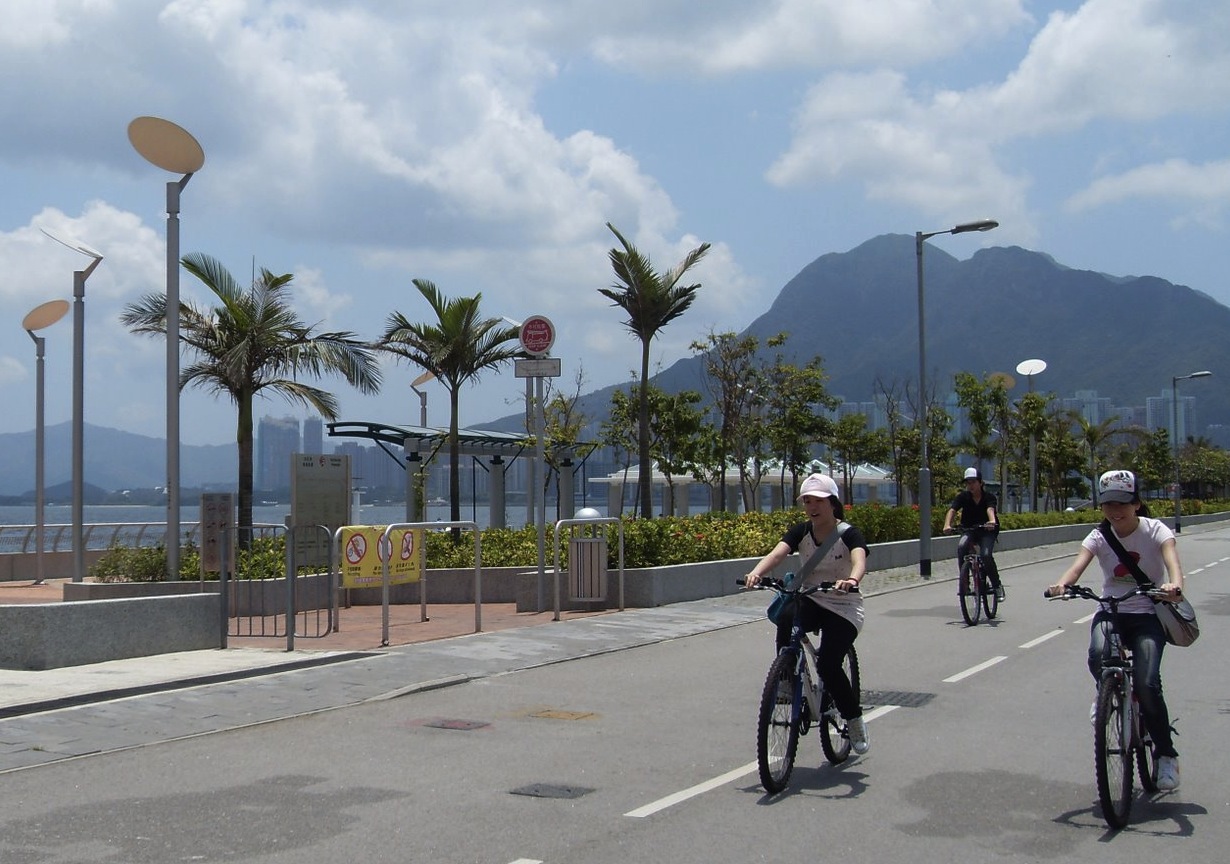Do bicycles make sense for Hong Kong?


HONG KONG -- Cyclists here have to contend with a hilly landscape, hot weather and congested roads. But that's not getting in the way of people who want to bike to work, school or the corner store.
The problem is the government doesn’t want them to.
The government's official stance is that it "does not encourage the use of bicycles as a transport mode in urban areas" because it is unsafe, citing the narrow roads and densely packed vehicles, people and buildings. Also, it insists that with such a sophisticated public-transportation system — big buses, little buses, a neat web of trains whooshing every which way — bicycles are just unnecessary.
Instead, the government supports cycling only as a recreational activity on paved bike paths in the more remote areas of Hong Kong. And there are no signs of this attitude changing any time soon.
But advocates for a more bicycle-friendly infrastructure point to other major metropolises such as London, New York and Tokyo that have embraced the culture of cycling as an environmentally friendly and convenient mode of transportation that offers good exercise to boot.
Nick Andrew of advocacy group Hong Kong Cycling Alliance says public transportation alleviates some environmental problems, but it is still "not the answer." The group is fighting for policy changes, which will lead to safer conditions for cyclists.
"Driver education is very important and is sorely lacking in Hong Kong," Andrew said. "Certainly the Transportation Department mostly believes that cyclists need education in the way that they cycle and behave, and they don't believe so much that drivers need education."
Another major problem is inadequate bicycle parking. A study conducted in 2009 showed that in the relatively bucolic district of Shatin, there were only 10,617 parking spots for 150,000 bikes. It is illegal to chain a bike to a railing not designated as a parking area. The South China Morning Post has reported on confiscations of illegally parked bikes with barely any warning, and, more disturbing, that owners have no way of reclaiming them.
One man, Leung Wang-hei, outraged by the confiscation of his bike that was locked to a railing overnight and his subsequent inability to get it back, started a Facebook group “Who Stole My Bike?” He writes, “Many international cities have various policies to encourage citizens to use bicycles. Not only does the Hong Kong government lack such planning or support, but law enforcement also marginalizes cycling enthusiasts.”
His frustration is felt by the pro-cycling movement that is calling for improvements in infrastructure, laws and driver attitude. But if the progress in U.S. and European cities is any indication, creating an environment conducive to road biking takes years, even decades, of advocacy and incremental changes — and Hong Kong has only just started.
Photo: Vanessa Ko
This post was originally published on Smartplanet.com